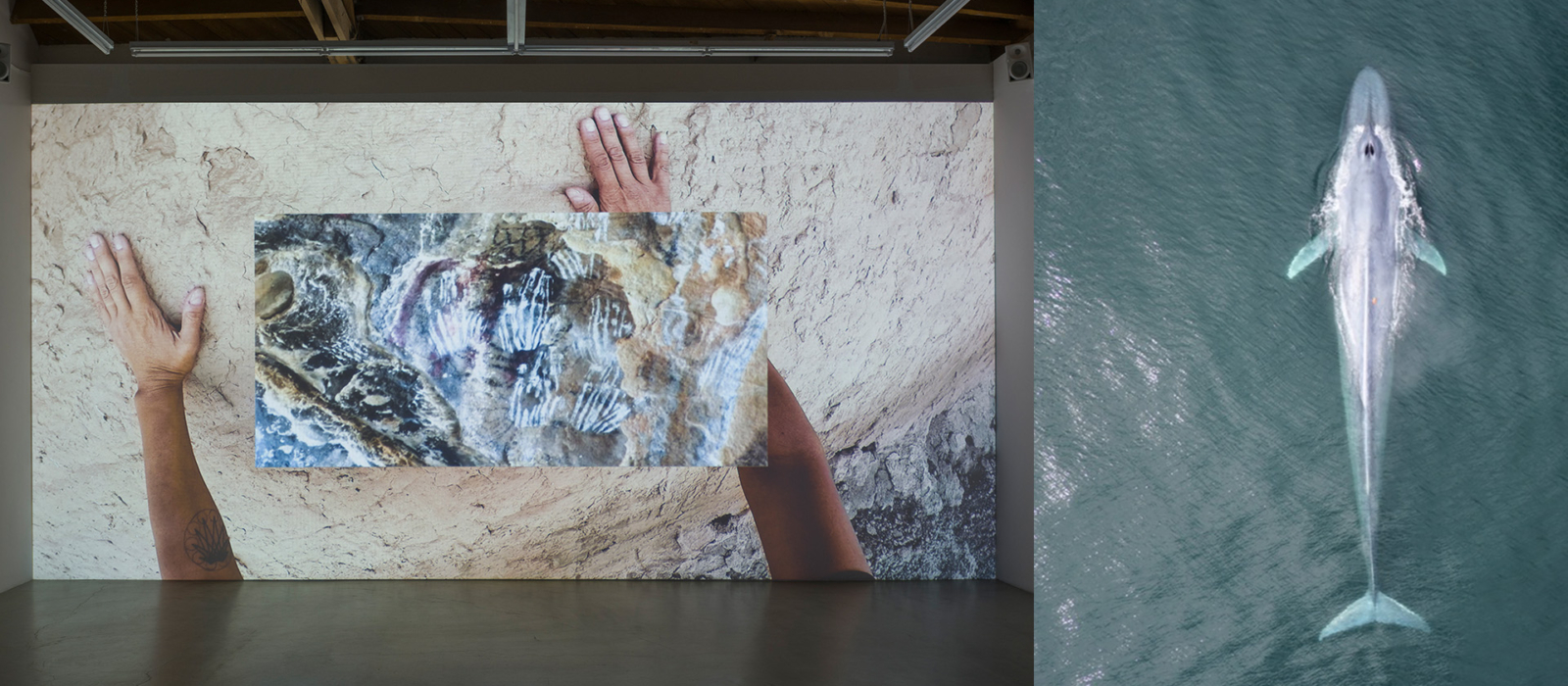Seeing Through Stone: Sonny Trujillo’s Voice from Within
Remy Francisco, October 25, 2024 At 63 years old, Sonny Trujillo stands upon a collapsed prison surveillance tower. He paces five steps...


Join us for a conversation between Dr. Rachel Nelson, Chief Curator and Director at the IAS, and Dr. Ari Friedlaender, Professor of Ocean Sciences, introducing An Aesthetics of Resilience, a new collaboration between the Friedlaender Lab, which focuses on using technology to study the impacts of environmental change on marine mammals, and the Institute of the Arts and Sciences (IAS), UCSC’s premier art and research galleries.
An Aesthetics of Resilience brings scientists, artists, scholars, and activists together to examine multiple experiences of vulnerability in the face of climate change. In this initial conversation, Drs. Nelson and Friedlaender will discuss their collaborative methods, why contemporary artists are necessary research partners for the scientists, and the types of cultural shifts they hope this work will catalyze.
This event is free and open to the public but space is limited. Registration is now full.
Rachel Nelson is director and chief curator of the Institute of the Arts and Sciences. She has curated and organized exhibitions including Barring Freedom, a group exhibition engaging art, prisons, and justice; Carlos Motta: We The Enemy; jackie sumell: Solitary Garden; Newton Harrison and Helen Mayer Harrison: Future Garden, and other projects with artists including Sadie Barnette, Maria Gaspar, Carolina Caycedo and David de Rozas, and Janet Cardiff and George Bures Miller. Nelson also writes and publishes extensively on contemporary art and geopolitics, including exhibition catalogue essays, journal articles, and reviews in Journal of Curatorial Studies, Public History Weekly, Brooklyn Rail, NKA, Third Text, Savvy, and African Arts. She teaches in the History of Art and Visual Culture department at UC Santa Cruz.
Ari Friedlaender, Professor, Ocean Sciences, UC Santa Cruz, is an ecologist with a primary interest in understanding the relationship between the foraging behavior of marine mammals and their prey. He works on a wide range of marine mammal species including baleen and toothed whales and dolphins across a range of geographic regions. Prof. Friedlaender has long-term ecological research projects ongoing in Alaska, California, Massachusetts, North Carolina, and Antarctica. He has helped in the development of tag technology and analytical and visualization tools to better understand the underwater movements and behaviors of marine mammals. In Antarctica, Prof. Friedlaender is part of the Long-Term Ecological Research program at Palmer Station to better understand the ecological roles of cetaceans in a rapidly changing environment. In Alaska and Massachusetts, Prof. Friedlaender’s research focuses on variability in the foraging strategies of humpback whales in relation to changes in their prey. In California, he is part of the SoCal Behavioral Response Study to understand the impacts of anthropogenic sound on a variety of cetacean species. Along with this research, he is an active member of the Society for Marine Mammalogy, acting as an associate editor for Marine Mammal Science and serving on the Conservation Committee. Prof. Friedlaender is also a principal investigator in the Southern Ocean Research Partnership to conduct non-lethal research on cetaceans in the Southern Ocean.
An Aesthetics of Resilience is organized by Rachel Nelson and Ari Friedlaender and supported by a University of California Office of the President California Climate Action Seed Grant, with additional support from the Coha Nowark Art + Science Fund.
Image Information
Left: Christine Howard Sandoval, Niniwas- to belong here, 2022, single channel video with audio, TRT 12:23, Sound design in collaboration with Luz Fleming. Installation for the green shoot that cracks the rock, parrasch heijnen Gallery, LA, 2022. Image courtesy of parrasch heijnen Gallery
Right: A tagged blue whale surfaces off the coast of California. Photo by Dr. David Johnston, Duke Marine Robotics and Remote Sensing Lab. Collected under appropriate National Marine Fisheries (NMFS) / Marine Mammal Protection Act (MMPA) and Institutional Animal Care and Use Committee (IACUC) permits.